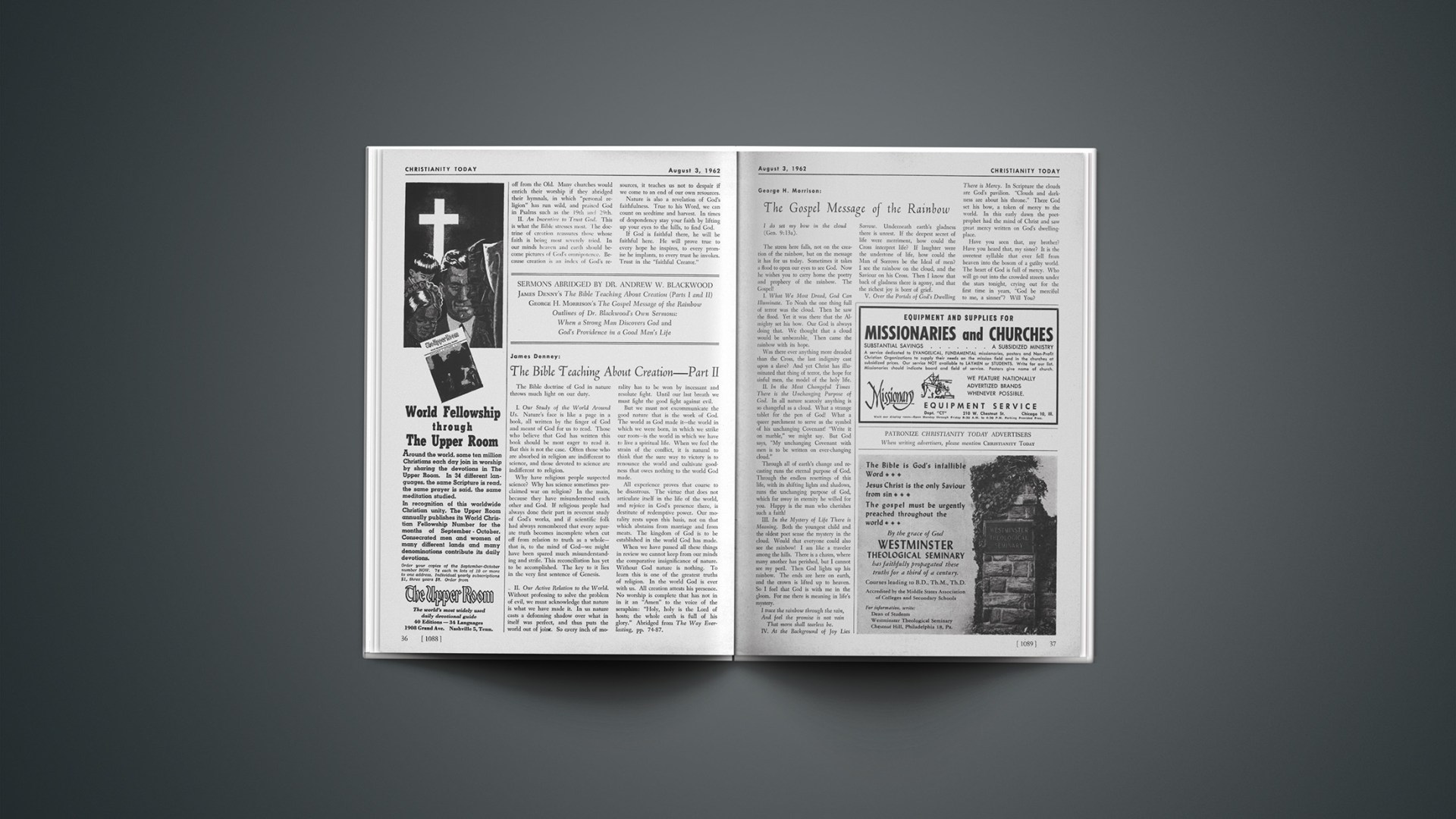The Bible doctrine of God in nature throws much light on our duty.
I. Our Study of the World Around Us. Nature’s face is like a page in a book, all written by the finger of God and meant of God for us to read. Those who believe that God has written this book should he most eager to read it. But this is not the case. Often those who are absorbed in religion are indifferent to science, and those devoted to science are indifferent to religion.
Why have religious people suspected science? Why has science sometimes proclaimed war on religion? In the main, because they have misunderstood each other and God. If religious people had always done their part in reverent study of God’s works, and if scientific folk had always remembered that every separate truth becomes incomplete when cut off from relation to truth as a whole—that is, to the mind of God—we might have been spared much misunderstanding and strife. This reconciliation has yet to be accomplished. The key to it lies in the very first sentence of Genesis.
II. Our Active Relation to the World. Without professing to solve the problem of evil, we must acknowledge that nature is what we have made it. In us nature casts a deforming shadow over what in itself was perfect, and thus puts the world out of joint. So every inch of morality has to be won by incessant and resolute fight. Until our last breath we must fight the good fight against evil.
But we must not excommunicate the good nature that is the work of God. The world as God made it—the world in which we were born, in which we strike our roots—is the world in which we have to live a spiritual life. When we feel the strain of the conflict, it is natural to think that the sure way to victory is to renounce the world and cultivate goodness that owes nothing to the world God made.
All experience proves that course to be disastrous. The virtue that does not articulate itself in the life of the world, and rejoice in God’s presence there, is destitute of redemptive power. Our morality rests upon this basis, not on that which abstains from marriage and from meats. The kingdom of God is to be established in the world God has made.
When we have passed all these things in review we cannot keep from our minds the comparative insignificance of nature. Without God nature is nothing. To learn this is one of the greatest truths of religion. In the world God is ever with us. All creation attests his presence. No worship is complete that has not in in it an “Amen” to the voice of the seraphim: “Holy, holy is the Lord of hosts; the whole earth is full of his glory.” Abridged from The Way Everlasting, pp. 74–87.









